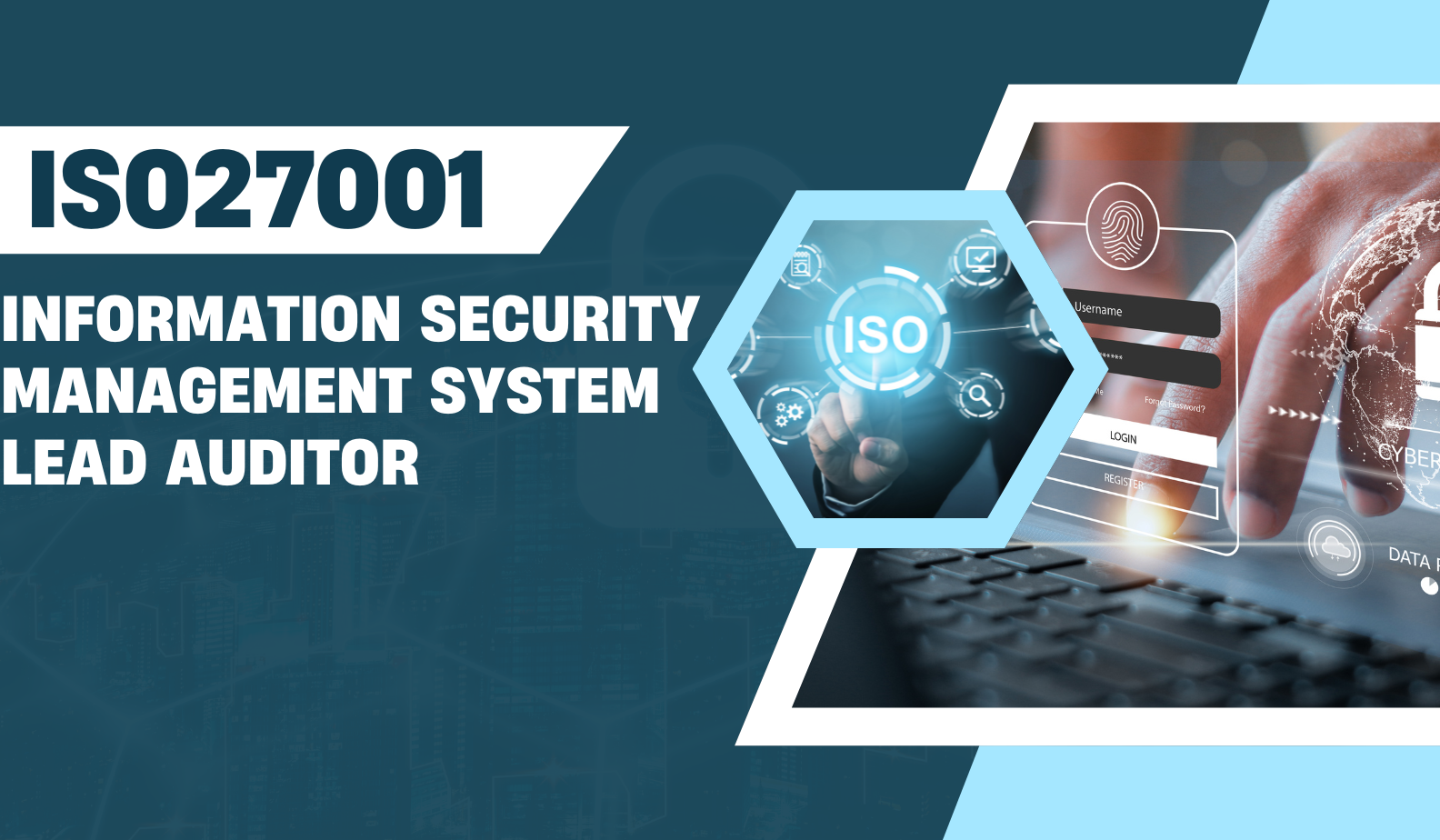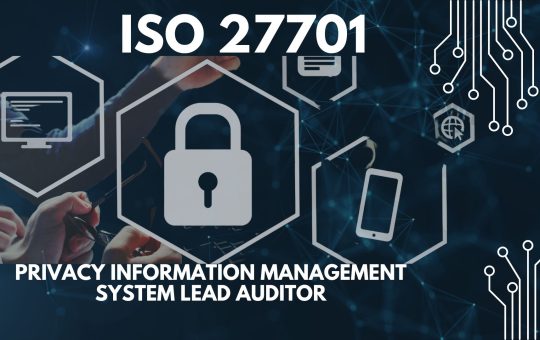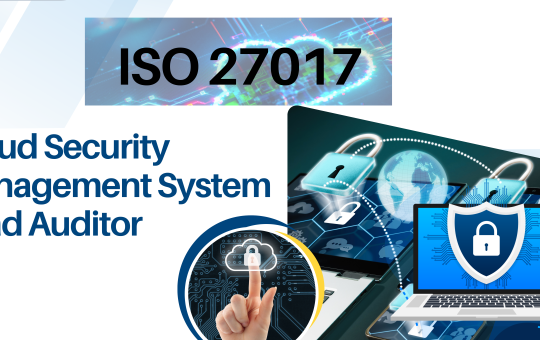
ISO 27001 Information Security Management System Lead Auditor
- Global Recognition: Achieve a prestigious certification recognized worldwide.
- Enhanced Security Expertise: Gain a comprehensive understanding of information security frameworks.
- Career Growth: Open doors to senior roles in IT security, compliance, and auditing.
- Risk Mitigation: Learn to identify vulnerabilities and improve data protection strategies.
- Compliance Leadership: Ensure organizations adhere to ISO 27001 and related legal requirements.
- Real-World Skills: Acquire practical auditing techniques applicable across industries.
- Understand the principles and requirements of the ISO 27001 standard.
- Develop the skills to plan, execute, and manage ISMS audits.
- Learn to assess risk management and information security controls.
- Gain expertise in identifying vulnerabilities and ensuring compliance.
- Build confidence in leading audit teams and reporting findings effectively.
- Develop strategies for continuous improvement in information security practices.
- Experienced Trainers: Learn from certified auditors and industry experts.
- Practical Insights: Gain hands-on experience through case studies and exercises.
- Global Standards Alignment: Training fully adheres to ISO 27001 requirements.
- Flexible Learning Modes: Choose between online and in-person sessions.
- Post-Certification Support: Access resources and guidance for ongoing success.
- Proven Excellence: Join a network of successful professionals with globally recognized credentials.
Training Module
Introduction to ISO 27001
ISMS overview and importance
Benefits of ISO 27001 certification
Risk Management and Security Controls
Identifying & mitigating risks
Evaluating effectiveness of controls
Audit Principles and Planning
ISO 27001 audit principles
Preparing and managing audit schedules
Conducting an ISMS Audit
Evidence gathering & stakeholder interviews
Assessing compliance with ISO requirements
Non-Conformities & Corrective Actions
Documenting audit findings
Recommending corrective measures
Reporting & Communication
Preparing audit reports
Presenting to management & stakeholders
Continuous Improvement
Using audits to strengthen security
Promoting a culture of compliance
Competency Targets
Ability to lead ISO 27001 audits from planning to reporting.
Strong understanding of information security risks & controls.
Capability to identify non-conformities and recommend improvements.
Leadership skills in managing audit teams and stakeholder communication.
Competence in driving continuous improvement in ISMS.
Who is this designed for?
IT Security Professionals
Internal & External Auditors
Compliance Officers
Risk Managers
Information Security Managers
Professionals aiming for Lead Auditor/Consultant roles
Our assessment process is designed to ensure every learner achieves the required level of knowledge, skills, and understanding outlined in each course unit.
Purpose of Assessment
Assessment helps measure how well a learner has met the learning outcomes. It ensures consistency, quality, and fairness across all learners.
What Learners Need to Do
Learners must provide clear evidence that shows they have met all the learning outcomes and assessment criteria for each unit. This evidence can take different forms depending on the course and type of learning.
Types of Acceptable Evidence
Assignments, reports, or projects
Worksheets or written tasks
Portfolios of practical work
Answers to oral or written questions
Test or exam papers
Understanding the Structure
Learning outcomes explain what learners should know, understand, or be able to do.
Assessment criteria set the standard learners must meet to achieve each learning outcome.
Assessment Guidelines
All assessment must be authentic, current, and relevant to the unit.
Evidence must match each assessment criterion clearly.
Plagiarism or copied work is not accepted.
All learners must complete assessments within the given timelines.
Where applicable, assessments may be reviewed or verified by internal or external quality assurers.
Full learning outcomes and assessment criteria for each qualification are available from page 8 of the course handbook.
Top Courses
Related Courses
Let's Get in touch
Deleting Course Review
Course Access
This course is password protected. To access it please enter your password below:



